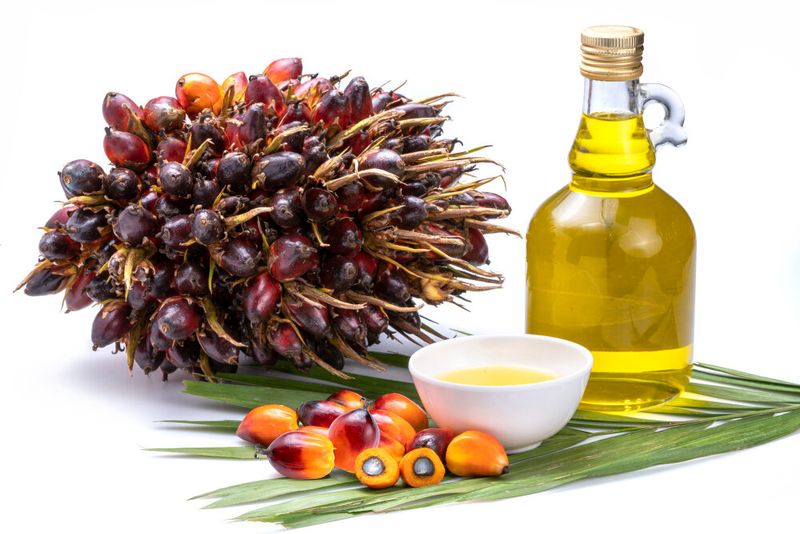Palm oil closes higher on weather woes at oilseeds plantations

Malaysian palm oil futures rose for a second session to close at a more-than-one-week high on Tuesday, tracking sustained gains in soyoil on poor weather in Brazil and Russia, while key palm producer Indonesia’s adverse weather conditions also supported palm prices.
The benchmark palm oil contract FCPOc3 for July delivery on the Bursa Malaysia Derivatives Exchange closed up 68ringgit, or 1.76%, to 3,930 ringgit ($829.81) a metric ton, the highest close since April 25.
After the massive sell-off of Malaysian palm oil in April, the market is re-pricing itself with weather vagaries in Brazil and Indonesia impacting edible oils, said Paramalingam Supramaniam, director at Selangor-based brokerage Pelindung Bestari.
Worries over soybeans shortage amid potentially crop-damaging weather in Brazil and Russia are pushing soyoil prices higher.
Indonesia’s meteorological agency warned of potential extreme weather events occurring in the country from May 7-13 such as tornadoes and thunderstorms, leading to floods and landslides.
About 64% of Indonesia will experience dry season between May and August this year, Malaysia-based Bernama reported on Saturday, quoting Indonesia’s meteorological agency. Hot weather negatively affects palm yields.
Dalian’s most-active soyoil contract DBYcv1 rose 1.51%,while its palm oil contract DCPcv1 climbed 2.22%. Soyoil prices on the Chicago Board of Trade BOcv1 increased 0.48%.
Palm oil is affected by price movements in related oils as they compete for a share in the global vegetable oils market.
The Malaysian ringgit MYR=, palm’s currency of trade, strengthened 0.02% against the dollar.
Oil steadied on Tuesday as weakness in the physical market countered concern about the conflict in the Middle East as Israel stepped up attacks in southern Gaza and a ceasefire deal between Hamas and Israel hung in the balance.
n palm oil futures rose for a second session to close at a more-than-one-week high on Tuesday, tracking sustained gains in soyoil on poor weather in Brazil and Russia, while key palm producer Indonesia’s adverse weather conditions also supported palm prices.
The benchmark palm oil contract FCPOc3 for July delivery on the Bursa Malaysia Derivatives Exchange closed up 68ringgit, or 1.76%, to 3,930 ringgit ($829.81) a metric ton, the highest close since April 25.
After the massive sell-off of Malaysian palm oil in April, the market is re-pricing itself with weather vagaries in Brazil and Indonesia impacting edible oils, said Paramalingam Supramaniam, director at Selangor-based brokerage Pelindung Bestari.
Worries over soybeans shortage amid potentially crop-damaging weather in Brazil and Russia are pushing soyoil prices higher.
Indonesia’s meteorological agency warned of potential extreme weather events occurring in the country from May 7-13 such as tornadoes and thunderstorms, leading to floods and landslides.
About 64% of Indonesia will experience dry season between May and August this year, Malaysia-based Bernama reported on Saturday, quoting Indonesia’s meteorological agency. Hot weather negatively affects palm yields.
Dalian’s most-active soyoil contract DBYcv1 rose 1.51%,while its palm oil contract DCPcv1 climbed 2.22%. Soyoil prices on the Chicago Board of Trade BOcv1 increased 0.48%.
Palm oil is affected by price movements in related oils as they compete for a share in the global vegetable oils market.
The Malaysian ringgit MYR=, palm’s currency of trade, strengthened 0.02% against the dollar.
Oil steadied on Tuesday as weakness in the physical market countered concern about the conflict in the Middle East as Israel stepped up attacks in southern Gaza and a ceasefire deal between Hamas and Israel hung in the balance.
Read also
Wheat in Southern Brazil Impacted by Dry Weather and Frosts
Oilseed Industry. Leaders and Strategies in the Times of a Great Change
Black Sea & Danube Region: Oilseed and Vegoil Markets Within Ongoing Transfor...
Serbia. The drought will cause extremely high losses for farmers this year
2023/24 Safrinha Corn in Brazil 91% Harvested
Write to us
Our manager will contact you soon



